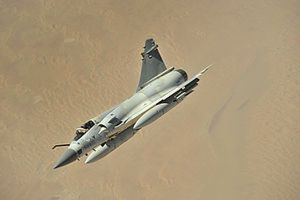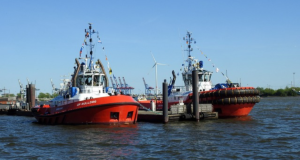“Oppression must be homegrown, like oil.”
 Amman, February 17 – After a lull in military moves by the United Arab Emirates, Jordanian and Emirati officials confirmed today that the two countries would run joint operations to roll back some of the recent gains by free-expression advocates.
Amman, February 17 – After a lull in military moves by the United Arab Emirates, Jordanian and Emirati officials confirmed today that the two countries would run joint operations to roll back some of the recent gains by free-expression advocates.
Emirati air force pilots began running sorties from Jordan again this week, formally reintroducing the use of force by both nations to check the expansion of the threat. Representatives of both governments stressed the danger that freedom of expression poses to stability in both kingdoms, as well as in the Middle East at large, and that strong measures were necessary to ensure that it never gains a permanent foothold in the sensitive region.
Just last week, Jordanian authorities prosecuted a man for speaking against the UAE. “We cannot allow the scourge of people speaking their minds undermine those who legitimately usurped power over them decades ago,” said a spokesman for King Abdullah II, whose rule is based on British conquerors granting his great-grandfather and namesake control over portions of the Ottoman Empire they wrested from that dying power in 1918. “A country that allows its citizens to criticize the government, or that of important allies, grants those citizens power they are ill-equipped to use responsibly. What comes next – giving them the power to vote their leaders out of office?” he added rhetorically.
As evidence of the disastrous consequences of allowing citizens freedom of expression the spokesman pointed to neighboring Israel, which, in contrast to Jordan’s stately pace of four leaders since the 1940’s, has had no fewer than nine prime ministers, more than double the number of Jordan’s kings. Such instability at the top has seldom plagued Syria, Jordan, Egypt, Iraq, Iran, or other regional countries until the Arab Spring. A notable exception has been Lebanon, but the de facto powers-that-be in Beirut prefer to exploit the instability and political stagnation to prevent real political change, and is thus the exception that proves the rule.
“A key principle to keep in mind in these matters is that Western notions of freedom are really only fit for Western countries,” explained UAE Ambassador to Jordan Prince Formerlinonas. “Even the leaders of those Western countries would much prefer to have one stable potentate to deal with, and not have to worry about democracy and a whole new slate of delegates and officials to keep tabs on every few years. One king, or president, if one prefers the term, succeeded by a hand-picked successor. A tight lid on expression is what makes that possible.”
Prince Formerlinonas accused outsiders of meddling in internal Middle East affairs to foment unrest such as the Arab Spring. “The only time such meddling was OK was when that was the mechanism to establish the countries we have now,” he said. “Oppression must be homegrown, like oil.”




